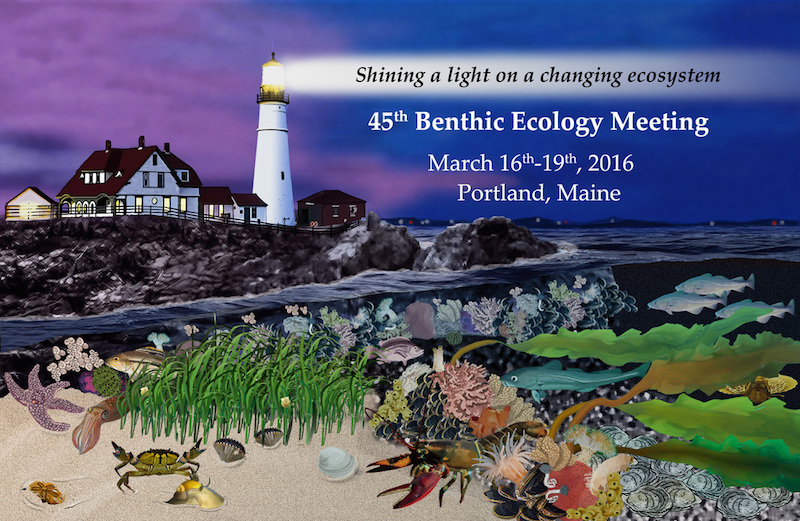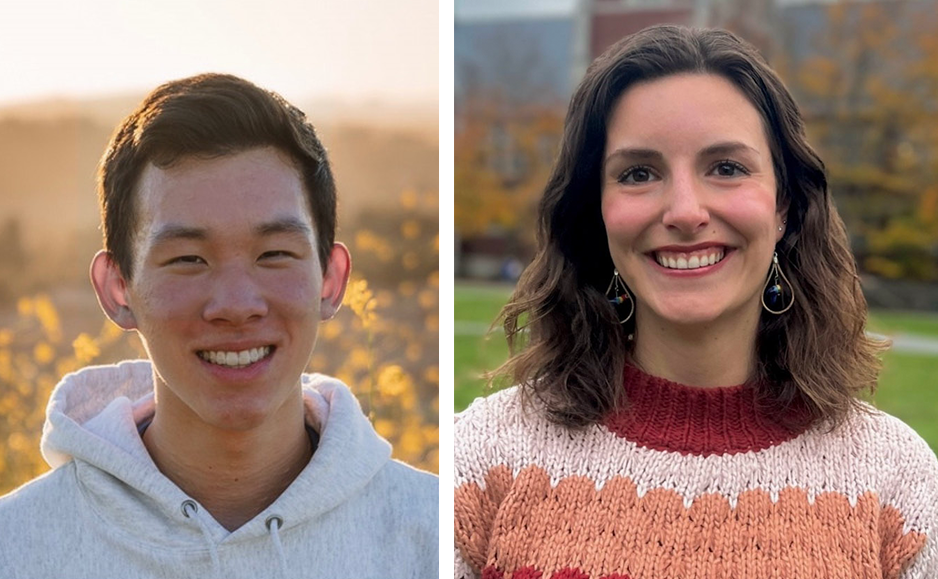Bowdoin To Host Big Marine Science Conference in Portland
By Rebecca Goldfine
Twenty-four years ago when he was a graduate student of benthic ecology, David Carlon, director of the Bowdoin Coastal Studies Center, gave his first professional talk at the annual Benthic Ecology Meeting. This year, Carlon is organizing the meeting, which Bowdoin College will host.
The 45th Benthic Ecology Meeting will take place March 16-19 in Portland, Maine. It is likely to attract between 400 and 500 marine scientists and students from around the world who are researching the benthic ecosystem, or the ocean floor. “The [marine benthic zone] includes all the activity going on at the bottom of the ocean, in the rocky intertidal zones and in the sub-tidal zones,” Carlon noted. Commercially important organisms such as lobsters inhabit the benthos, as do coral reefs.
The conference also provides an opportunity to put Bowdoin on the radar of many marine scientists. “It will shine a light on all our marine-related programs and students at the Coastal Studies Center,” Carlon noted. Over the past few years, the Center on Orr’s Island has been expanding its facilities and academic programs.

This fall, Bowdoin’s Coastal Studies Center launched the Marine Science Semester, an immersive academic experience for undergraduates. Bowdoin is also adding equipment to its marine lab and research pier in the coming year to enable more scientists to do in-depth and precise studies of climate change’s effects on marine life.
Many researchers will be drawn to the upcoming Benthic Ecology Meeting because they’re also interested in learning about what is going on in the Gulf of Maine, whose waters lap Portland’s piers. “It’s a way to shine light on the changing ecosystem in the Gulf of Maine,” Carlon said. The cold-water gulf is in flux, transforming more rapidly than any other body of water under the effects of climate change and overfishing.
Dr. Boris Worm, of Dalhousie University in Nova Scotia, will give the plenary address. Worm researches the interactions between people and marine biodiversity, and he tracks changes in biodiversity, focusing in particular on large marine predators such as sharks, tuna, billfish and whales.
Carlon said Bowdoin students can participate in the conference by giving short presentations on their research or by helping to organize and run the event. Thirty student volunteers will be recruited from Bowdoin, Bates and Colby colleges, and in return will gain free admittance. The event is open to the public but does require a registration fee.



